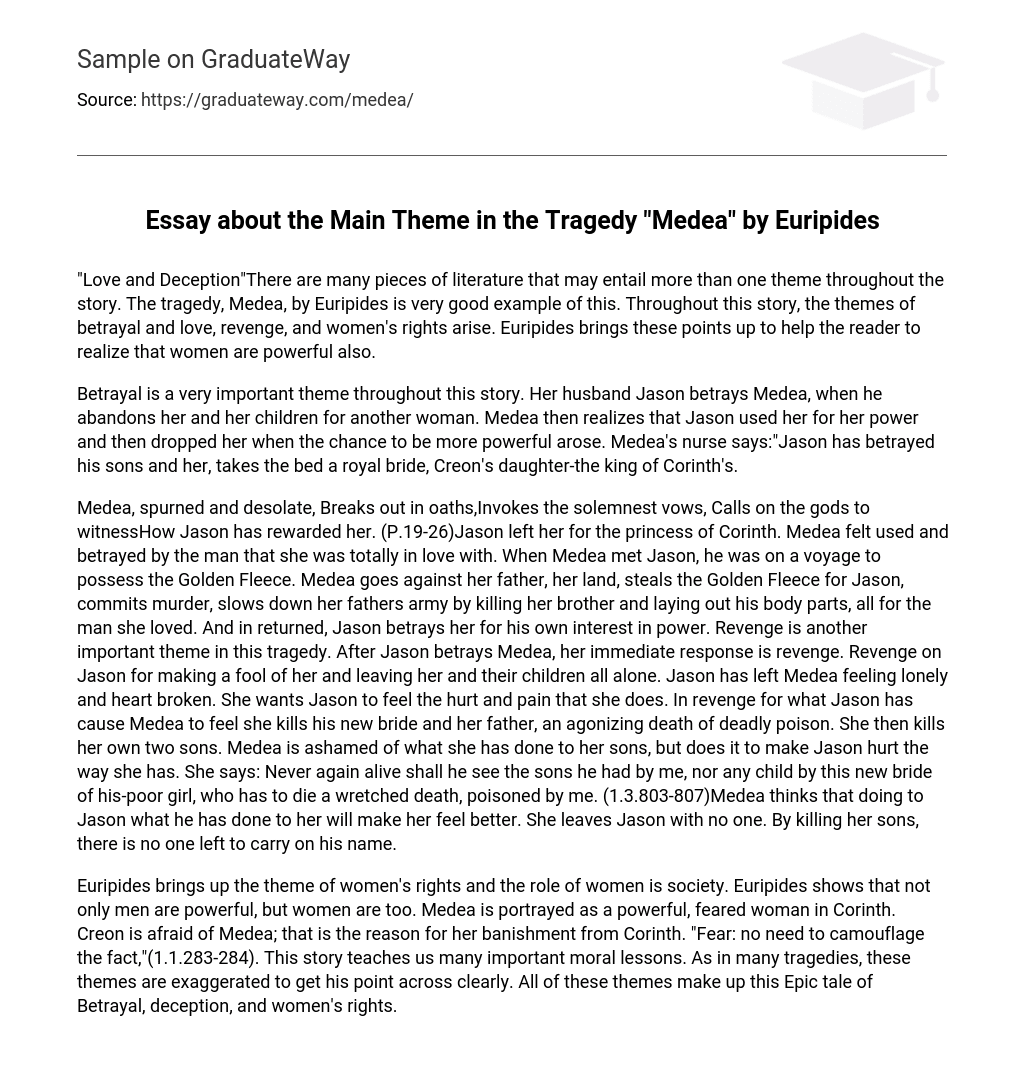“Love and Deception”: There are several literary works that exhibit multiple themes. Medea, a tragedy by Euripides, serves as a prime example. The story explores themes of betrayal, love, revenge, and women’s rights. Euripides skillfully raises these ideas to highlight the power of women.
The theme of betrayal is prominent in this story as Medea’s husband, Jason, betrays her by leaving her and their children for another woman. Medea discovers that Jason only used her for her power and left her when a chance for greater power arose. The nurse of Medea confirms this betrayal, stating that Jason has betrayed both his sons and Medea and has taken a new bride, Creon’s daughter, who is the royalty of Corinth.
Medea, rejected and devastated, erupts in curses and swears by the gods to testify to how Jason has repaid her. He abandoned her for the princess of Corinth, causing Medea to feel used and betrayed by the man she deeply loved. Initially, Jason sought the Golden Fleece when they first met, and despite defying her father and homeland, Medea stole it for him, committed murder, and hindered her father’s army in order to prove her love. In response, Jason betrays her to further his own ambitions for power. Revenge emerges as a significant theme in this tragedy, as Medea immediately seeks vengeance upon Jason for humiliating her and deserting her and their children. Feeling lonely and heartbroken due to Jason’s actions, Medea desires him to experience the same pain she endures. Thus, in retaliation, she causes the agonizing death of his new bride and her father through a lethal poison. Ultimately, she also kills their two sons, an act which she regrets but does so to inflict the same hurt upon Jason. Medea believes that by reciprocating Jason’s actions, she can find solace, leaving him with no one in his life.By taking the lives of her sons, there remains no one to continue carrying their father’s name.
Euripides addresses the topic of women’s rights and their societal role, emphasizing that women possess power similar to men. A dominant and feared figure in Corinth, Medea is depicted as a formidable woman. Her expulsion from Corinth is attributed to Creon’s fear of her: “Fear: no need to camouflage the fact” (1.1.283-284). This narrative imparts significant moral lessons and employs exaggeration to effectively convey its themes, as is often seen in tragedies. Betrayal, deceit, and women’s rights collectively constitute this grand tale.





